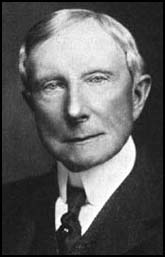
John D. Rockefeller

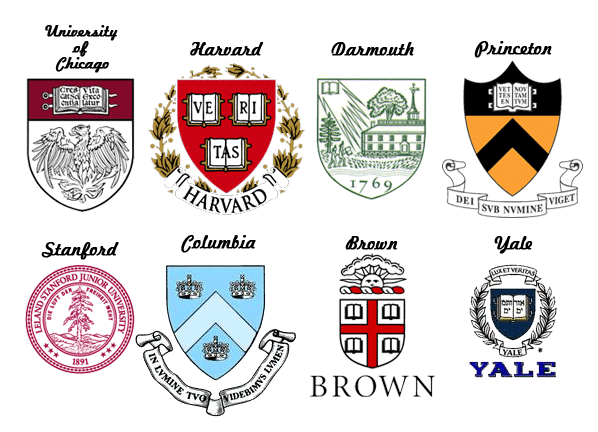
From 1956 to 1960 the Fund financed an ambitious study conceived by its then president, Nelson Rockefeller, to 'define the major problems and opportunities facing the U.S. and clarify national purposes and objectives, and to develop principles which could serve as the basis of future national policy'. Nelson recruited Henry Kissinger, who was then on the faculty of Harvard University, as director of the project; he had first met Kissinger in 1955. He also brought on board such luminaries as Edward Teller 'the father of the hydrogen bomb" (1908 - 2003). Emigrated to the US in the 1930s and was an early member of the Manhattan Project, a nuclear testing program. Considered inspiration for Dr. Strangelove in the 1964 movie of the same name. Teller became controversial in 1954 when he testified against J. Robert Oppenheimer, a former head of Los Alamos and an advisor to the Atomic Energy Commission, at Oppenheimer's security clearance hearing. Teller promoted increased defense spending to counter the perceived Soviet missile threat. He was a signatory to the 1958 report by the military sub-panel of the Rockefeller Brothers funded Special Studies Project, which called for a $3 billion annual increase in America's military budget

Former President of South Africa
Henry Kissinger
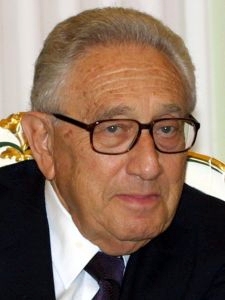
Former National Security Advisor and Secretary of State during the Nixon and Ford administrations.
He was involved in the B-52 carpet bombing in Cambodia.
Richard Parsons
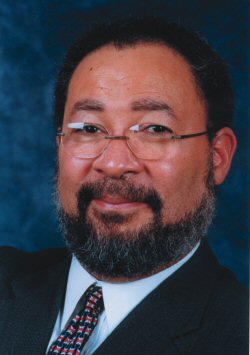
Chairman and CEO of Time Warner and now current chairman of Citigroup.
He was also a senior fellow at the Brookings Institution, as well as the Carnegie Endowment for International Peace.
He co-founded the Center for Global Development.
currently he Serves as a member of the Economic Advisory Team for President Obama
Peter G. Peterson
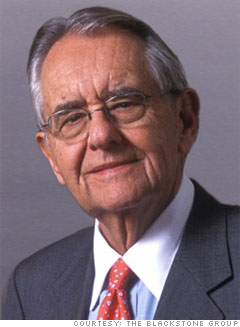
Paul Volcker Jr.
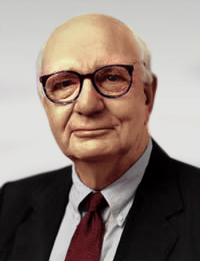
J. Rothschild, Wolfensohn & Co
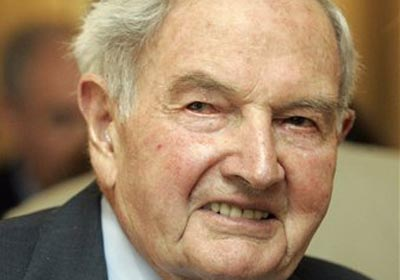
David Rockefeller
David Rockefeller - Born in 1915 and youngest son of John D. Rockefeller, Jr. Descendant of the German-Jewish Roggenfelder family which came to the United States in 1722. Attended school in New York City and graduated with a bachelor's degree in English history and literature from Harvard University in 1936 and followed this with a Ph.D. (1940) in economics from the University of Chicago, following study at both Harvard and the London School of Economics. He married Margaret "Peggy" McGrath in September 1940 and they raised six children, including son David Rockefeller Jr. Along with his brothers - John D. II, Nelson, Laurance, and Winthrop, David Rockefeller established the Rockefeller Brothers Fund (RBF) in 1940.
He became a trustee of The Rockefeller Institute for Medical Research in 1940. Trustee Rockefeller University 1940-1995. Secretary to New York City Mayor Fiorello H. LaGuardia 1940-1941. Assistant regional director of the United States Office of Defense, Health and Welfare Service 1941-1942. Enlisted in the U.S. Army in 1942. Military Intelligence officer in North Africa and Southern France 1942-1945. Assistant Military Attaché in Paris in the last 7 months of the war . Joined Chase National/Manhattan Bank in 1946 as an assistant manager under Winthrop W. Aldrich (Rockefeller intermarried) in the Foreign Department. Assistant manager in the Foreign Department, Chase National Bank 1947-1948. Vice-president Council on Foreign Relations 1950-1970. Chairman of The Rockefeller Institute for Medical Research 1950-1975. Senior vice president of Chase National Bank with responsibility for supervising the economic research department and customer relations in the metropolitan New York area, including all the New York City branches 1952-1955. Attended the first Bilderberg meeting in 1954 and was one of its founders. When Chase National and the Bank of the Manhattan Company merged in 1955, David Rockefeller was appointed an executive vice president in charge of the bank development department. In 1957, he became vice chairman of the Board of Directors with responsibility for the administrative and planning functions of the bank as a whole. Briefly chairman of the Museum of Modern Art (MoMA) in 1958. Again in 1962-1972, and again in 1987-1993. Life trustee of the University of Chicago (which his grandfather helped establish) and an honorary trustee of International House (New York), established by his father. In 1958 David Rockefeller helped establish the Downtown-Lower Manhattan Association (D-LMA), serving as its chairman 1958-1975. Primary founder of the Dartmouth Conferences in 1960, which was initiated at Dartmouth College in an effort to prevent U.S.-Soviet nuclear conflict. Only influential private citizens with no government positions were supposed to meet here. President of Chase Manhattan 1961-1969. In 1962, the Port Authority of New York and New Jersey began plans to build the World Trade Center, which was pushed hard for by David and Nelson Rockefeller. Founding member of the Commission on White House Fellows, 1964. David had a two and a half hour meeting in Moscow with Nikita Khrushchev in the summer of 1964. He reported to president Johnson that Khrushchev would like to do more trade with the United States and David recommended that more credit should be extended to the Russians. Met Khrushchev's successor, Leonid Brezhnev, soon afterwards. Also met Chou En-lai in the 1960s, to discuss economic cooperation. Others David would meet with are Deng Xiaoping, Nasser, Saddam Hussein, Fidel Castro, the Shah of Iran, etc. David is on very good terms with Nelson Mandela and they regularly meet each other. It's interesting to note that Mandela is one of George W. Bush's fiercest critiques. Instrumental in the formation of the International Executive Service Corps and chairman 1964-1968. Founder Americas Society in 1965 (then called Council of the Americas). Helped found the Rockefeller Family Fund in 1967. Helped form The Business Committee for the Arts in 1967. Chairman and CEO of the board of Chase Manhattan 1969-1981. Chairman Council on Foreign Relations 1970-1985. Founder of the Trilateral Commission in 1973. Chairman Trilateral Commission 1977-1991. Founded the New York City Partnership in 1979 and chairman 1979-1988. Chairman Chase Manhattan Bank Advisory Committee 1981-1999. Trustee Carnegie Endowment International Peace since 1981. President of the Harvard College Board of Overseers; life trustee of the University of Chicago; one of the most important members of the Bilderberg committee; visitor of the Bohemian Grove Stowaway camp; member American-Australian Association; chairman Americas Society 1981-1992; chairman Rockefeller Group 1981-1995. Helped to establish the David Rockefeller Center for Latin American Studies at Harvard University in 1994. Chairman of Rockefeller Center Properties 1996-2001; became a director of the Shinsei Bank in 2000; chairman Rockefeller University; chairman of the Museum of Modern Art; member International Council of J.P. Morgan Chase; wrote 'Unused Resources and Economic Waste' (1940), 'Creative Management in Banking' (1964), and 'Memoirs' (2002); major shareholder of Atlantic Richfield Petroleum and International Petroleum Corporation (also a napalm manufacturer). David is the last of the "Fortunate Five" brothers. Winthrop died in 1972 after having been devastated by a chemotherapy procedure; John D. III died in a 1978 car crash; Nelson died in 1979 in bed with his mistress. Laurence, who was heavily into UFO research, died in 2004 of natural causes. In cooperation with Steven Greer, Laurence Rockefeller supposedly also led an effort from 1993-1996 to get the Clinton Administration (Bill supported it) to declassify all UFO information held by the government. They decided not to go through with it, because of the danger associated with it. David and Laurence were members of the Peace Parks foundation. David was a member of Le Cercle.
Nelson Rockefeller - Dartmouth College Psi Upsilon Fraternity. Director of the Rockefeller Center 1931-1958. Coordinator Office of Inter-American Affairs 1940-1944. Chairman International Development Advisory Board 1950-1951. Chairman President's Advisory Committee on Government Organization 1952-1958. Present at the United Nations founding in San Francisco from April 25 to June 26, 1945, and is said to have played a prominent role. His father donated the land the United Nations headquarters was built on. Governor of New York 1959–1973. Vice-president of the United States under Gerald Ford 1974–1977. Chairman National Commission on Critical Choices for America. Member Council on Foreign Relations. Died in 1979 when he was with his mistress, Megan Marshak. He was cremated within 18 hours after his death. There is no known "tell all" of the events by Marshak, and she appears to have dropped out of public view since Rockefeller's death.









